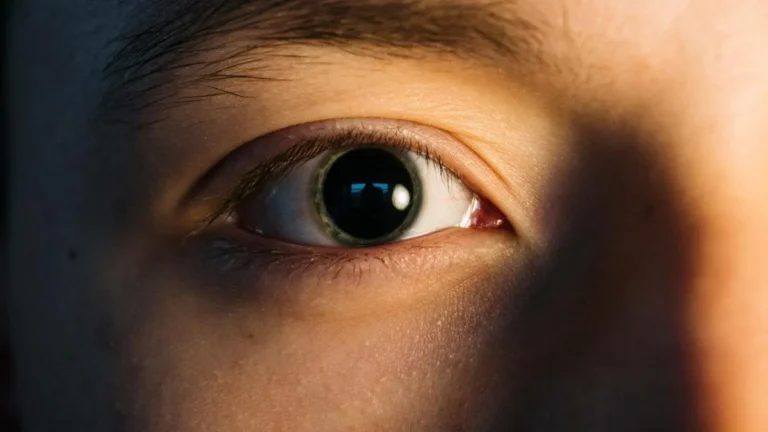Can Asthma Make Your Chest Pop or Click? Understanding the Causes
Ever had that strange sensation where your chest feels like it’s popping or clicking—especially when you breathe deeply—and wondered, can asthma make your chest pop or click? You’re not alone. I’ve had a handful of patients over the years bring this up, and I’ve even felt it myself a time or two when my own breathing felt off. As a pulmonary nurse practitioner, I’ve spent a lot of time talking with folks about all the weird and sometimes alarming ways asthma can show up—and let me tell you, chest popping and clicking? It’s not as uncommon as you might think. Let’s break it down, the real talk way.
What That Chest Popping Might Actually Be

So, what’s really causing that pop or click?
First things first, that noise or sensation you’re feeling isn’t always something directly inside the lungs themselves. It might come from the joints or cartilage where your ribs connect to your sternum—called the costosternal joints. Think of it like your knuckles cracking; it can happen when you move, stretch, or even breathe in a particular way. Now, asthma doesn’t literally cause your joints to pop, but here’s where it gets interesting.
Why Asthma Could Be Linked
When you’re dealing with asthma, your breathing patterns change—sometimes without you even realizing it. You may start breathing more shallowly, using different muscles, or tightening your chest in response to airway restriction. That constant tension and movement can definitely lead to those little pops or clicks that take you by surprise. In fact, I remember one patient who described it as feeling like a “bubble popping” in her chest every time she coughed—turns out, she was dealing with some muscular tension and postural changes from frequent asthma flare-ups.
Can Asthma Make Your Chest Pop or Click? Let’s Get Specific

Some real-life triggers that might make it happen:
- Persistent coughing: Repeated strain on the chest wall can lead to minor inflammation or movement in the rib joints.
- Overuse of accessory muscles: Asthmatics often recruit neck, shoulder, and chest muscles to breathe when short of breath.
- Poor posture during flare-ups: Slouching or hunching over to “catch your breath” can shift your rib alignment.
Now I’m not saying everyone with asthma is going to start hearing or feeling chest noises, but if your asthma is moderate to severe and you’ve been struggling with flare-ups, your body may be compensating in subtle ways—and sometimes that shows up as a pop, click, or even a low grating feeling in the chest.
Is It Dangerous?
Here’s where I get a little more clinical. Most of the time, these sensations are harmless. But if you’re feeling pain, shortness of breath that worsens, or you’ve got swelling or bruising (especially if you’ve been coughing hard), it’s worth checking out. Occasionally, we’ll see costochondritis—an inflammation of the cartilage where ribs attach—which can flare up in people with chronic respiratory issues like asthma.
It’s Not Always the Asthma Alone

Other potential reasons for chest popping sensations:
- Musculoskeletal imbalances: Especially in people who sit a lot, have upper body tension, or do repetitive movements.
- Scar tissue or prior injuries: A history of chest trauma can cause clicks or pops when tissue moves over itself.
- GERD and asthma connection: Acid reflux can cause chest discomfort and odd sensations that mimic musculoskeletal ones.
In my practice, I’ve found that the answer isn’t always cut-and-dry. That’s why I listen closely to how my patients describe their symptoms—not just what shows up on a scan or X-ray. Because if you tell me your chest pops when you breathe in deeply after a long coughing spell, I’m not going to brush that off. We’re going to look at posture, muscle tension, breathing technique—and yes, how well-controlled your asthma really is.
Listening to Your Body: When That Chest Click Is Trying to Tell You Something

Alright, but what if it keeps happening?
If that chest pop or click becomes a regular visitor—especially when paired with tightness, fatigue, or wheezing—you’ve got to dig a little deeper. I always say: your body has a voice, even if it doesn’t use words. Repeated popping, especially in the chest wall, can signal strain from overcompensation. A lot of my patients unknowingly hold their breath or use their shoulders and neck to force air in and out during asthma flares. That tension builds. Something’s gotta give—and sometimes, that “give” sounds like a pop.
Muscles, Joints & Breathing Mechanics
I’ve seen it firsthand—patients with asthma who unknowingly develop poor breathing mechanics. And not just during attacks. Even when they’re asymptomatic, their rib cage and intercostal muscles stay locked in “emergency mode.” Over time, the joints between the ribs and breastbone (or even the vertebrae in the back) might shift or catch slightly during deep breaths, creating that clicking noise. It’s mechanical, sure, but it’s also your body asking for a little help and maybe a physical therapy referral.
Can Asthma Make Your Chest Pop or Click? Yes, But Context Matters

Things I usually check with patients:
- Is the popping painful or just odd? Pain could mean inflammation, strain, or even mild injury.
- Does it happen during or after an asthma episode? Post-cough or post-wheezing clicks may point to muscular fatigue.
- Is posture playing a role? Slouched, tight chests tend to “crack” more when finally stretched.
In fact, I once had a patient who described a faint clicking in her upper chest whenever she exhaled forcefully. Turns out, she was subconsciously tensing her pectoral muscles all day—especially at work when she was anxious about her breathing. Once we started chest-expansion exercises and worked on posture, that click disappeared like it was never there.
Asthma + Stress = A Perfect Storm
Let’s talk about stress for a second. Because if you’ve got asthma, and you’re dealing with stress (and who isn’t?), that tension can absolutely feed into weird chest sensations. Anxiety tightens the chest. It changes how you breathe. Shallow breaths, frequent sighing, clenching your jaw or chest—all of this puts strain on your thoracic cage. And yes, that can absolutely produce those little popping sensations you feel when taking a deep breath or stretching after sitting too long.
What You Can Do to Ease the Chest Clicking Sensation

Simple, practical steps I often recommend:
- Work on breathing technique: Practice diaphragmatic breathing. Slow, deep belly breaths can relax overused chest muscles and reduce tension.
- Stretch it out daily: Thoracic mobility exercises can make a huge difference. Cat-cow stretches, rib openers, and even simple shoulder rolls help.
- Keep your asthma well-managed: This one’s non-negotiable. Consistent control = less chest strain = fewer odd sensations.
- Consider seeing a physical therapist: Especially one familiar with pulmonary conditions. They can assess your chest wall mechanics and help restore balance.
Another thing I always remind folks: hydration and inflammation are tightly linked. Stay hydrated, and keep inflammation in check—both from asthma and lifestyle choices. Even something as small as sleeping posture can make a difference. If you’re curling up tightly at night, your chest wall may not be getting the full range it needs. That tightness builds, and boom—there’s that little pop again when you wake up and stretch.
When to Call in the Pros
If the chest clicking is new, painful, or paired with worsening asthma symptoms, don’t try to tough it out. You need a proper listen—lungs, heart, and musculoskeletal exam. Sometimes that pop is benign. But occasionally it’s something we need to investigate further. I’ve had a few patients where that clicking turned out to be early signs of costochondritis or even mild rib subluxation. Nothing dramatic, but definitely something that needed attention before it worsened.
Bottom line? That click in your chest might not be cause for panic—but it is worth your attention. Especially if you’ve got asthma in the mix. And if you’re ever unsure, trust your gut and talk to someone who’ll really listen. Your chest shouldn’t sound like a bowl of Rice Krispies every time you breathe.
Putting It All Together: Listening, Managing, and Taking Action

So… Can Asthma Make Your Chest Pop or Click? Yes — but there’s more to the story.
By now, you’ve probably gathered that the answer isn’t just a simple yes or no. Can asthma make your chest pop or click? Yes, it can—but usually not directly. It’s more of a ripple effect. Asthma changes how you breathe. How you breathe affects how your muscles move. And those changes can result in tension, inflammation, and joint movement—all things that can cause that odd popping or clicking sound or sensation.
As someone who’s worked with a ton of asthma patients—and as someone who’s personally dealt with reactive airway issues—I’ve seen just how sneaky and frustrating these symptoms can be. It’s like a domino effect. You start off short of breath, then you’re tensing your chest, then your posture gets weird, and before you know it, you’re feeling (and maybe even hearing) a subtle pop when you stretch or breathe deep. It’s unsettling, for sure. But not always dangerous.
How to Keep It From Getting Worse

Here are a few things I’ve found helpful—personally and professionally:
- Check in with your breath daily: Even a few minutes of slow, mindful breathing can help reset muscle tension.
- Track your symptoms: Write down when the pop or click happens. Is it after a long day? After using your rescue inhaler? These patterns matter.
- Stay consistent with asthma meds: Flare-ups cause your muscles to work harder. The more controlled your asthma, the less strain you’ll have.
- Stay active—but smart: Light mobility exercises and stretches can help loosen your chest wall. Just don’t overdo it during flare-ups.
- Don’t ignore posture: This one’s big. I had a teen patient with asthma and frequent chest clicks—turned out her gaming posture was compressing her chest for hours daily. Once we adjusted that, the clicks dropped dramatically.
If you’re anything like my patients (or me, on my more stubborn days), you might try to brush it off. But here’s what I always remind people: your body’s always trying to communicate. That little click or pop? It might just be a gentle nudge to slow down, realign, breathe better, or ask for support.
When the Click Is More Than Just a Click
Let’s keep it real—sometimes the chest popping isn’t coming from asthma-related muscle tension. Occasionally, it’s something entirely different, like:
- Costochondritis: Inflammation of the cartilage at the rib joints. Usually painful, especially with pressure or movement.
- Rib dysfunction or subluxation: A slight shift or misalignment, often from poor posture or heavy coughing.
- Pleurisy or pleural rub: Less common, but worth ruling out if the popping is sharp and painful with each breath.
If your popping is accompanied by chest pain, shortness of breath that’s new, dizziness, or tightness that doesn’t ease up, don’t wait. That’s ER or urgent care territory. Better safe than sorry.
My Final Takeaway for Anyone Wondering About This
Chest clicking can be weird, alarming, and confusing. But in most asthma cases, it’s not something to panic over. It’s a clue—just one of many your body drops along the way. When I look back over the years with patients, some of the biggest breakthroughs came when we stopped ignoring the “weird stuff” and started getting curious about it.
It’s okay to trust your gut. And it’s even better to get the right eyes—and ears—on the issue. Whether it’s your PCP, a pulmonologist, a physical therapist, or someone like me in pulmonary care, just know you don’t have to figure it out alone.
Want to Learn More?
If you’re into the deeper science behind breathing mechanics and asthma complications, or you want to explore musculoskeletal causes of chest symptoms, here are a few trusted starting points I often share with patients:
- Asthma and Allergy Foundation of America
- American Lung Association
- National Heart, Lung, and Blood Institute
Disclaimer
This article is for educational purposes only and is not a substitute for medical advice, diagnosis, or treatment. If you’re experiencing persistent or severe symptoms, especially chest pain or breathing issues, consult a licensed healthcare provider immediately. All examples shared are based on clinical experience and do not represent specific patient cases.

Bianca Nala is a compassionate Nurse Practitioner with a strong background in primary and respiratory care. As a health writer for Healthusias.com, she combines her clinical expertise with a talent for clear, relatable storytelling to help readers better understand their health. Bianca focuses on topics like asthma, COPD, chronic cough, and overall lung health, aiming to simplify complex medical topics without losing accuracy. Whether she’s treating patients or writing articles, Bianca is driven by a single goal: making quality healthcare knowledge accessible to everyone.







